CDC Hubert Global Health Fellowship: Vet Student in Kenya
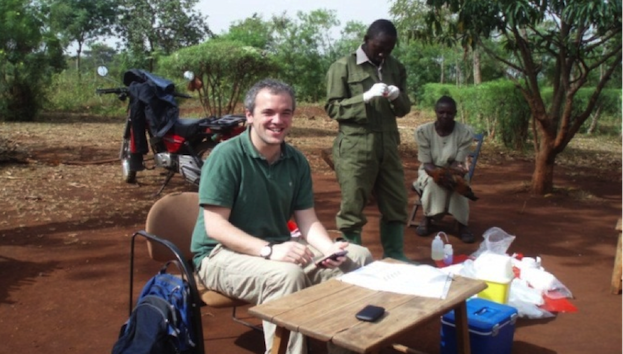
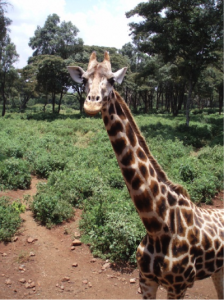 Hi! I’m pumped to be contributing to the Uncommon Veterinarian blog. Thanks Elliott for creating this resource for the vets and vet students who are interested in less-than-traditional vet careers. Today I’m going to babble a bit about my experience with the CDC Hubert Global Health Fellowship.
Hi! I’m pumped to be contributing to the Uncommon Veterinarian blog. Thanks Elliott for creating this resource for the vets and vet students who are interested in less-than-traditional vet careers. Today I’m going to babble a bit about my experience with the CDC Hubert Global Health Fellowship.
Summer in Kenya
I spent 8 weeks working with the CDC influenza branch in Nairobi, Kenya. The CDC provided me with plenty of in-country support including helping me to find an affordable, one-bedroom apartment in a safe neighborhood and provided me with transportation to and from the CDC offices every day.
I was officially working on human and domestic animal influenza surveillance in urban and rural areas but my position had a fair amount of flexibility and I was able to work on a variety of different projects ranging from a spina bifida investigation to visiting with the Kenya Wildlife Service veterinarians. As a vet student I loved the fact that I was able to work on both human and animal projects.
Day-to-Day Research Activities
I spent a large part of my time working on the domestic animal influenza surveillance program, which the CDC was running in conjunction with the Kenyan Ministry of Public Health in Kibera, a super-slum on the outskirts of Nairobi, and rural communities near Lake Victoria.
Much of my time in Kenya revolved around the data collection part of the project. This involved riding rusted bicycles down poorly maintained dirt roads in order to reach the rural villages and farms. The ride was kept interesting by the chickens, goats, and small children who enjoyed running across the road at inopportune times.
Once we reached our location we asked the farmers questions about the health of their animals and then took blood samples as well as nasal swabs from all of the dogs, pigs, chickens, and ducks that we found.
Completing this process in Kibera, the second largest slum in Africa, was even more interesting. Kibera is comprised of thousands of shacks and network of narrow, winding paths that make navigating the community incredibly difficult for outsiders.
Rabies Outbreak Investigation
While I was working in Nairobi, the CDC received reports of a rabies outbreak in the city of Kisumu, which is located on Lake Victoria. Rabies is a huge threat across the developing world because of the huge population of street dogs.
In the past Kenya has tried to fix the problem by poisoning dogs, which rarely solves the problem and usually creates a backlash in the community. The CDC was invited by the Kenyan ministry of Public Health to help with the outbreak response. A team of rabies specialists was flown out from Atlanta and I was able to join them and help with the outbreak response.
This was an amazing experience that involved finding the people that had been bitten by dogs, educating local public health officials about rabies prevention, assuring that the rabies vaccine was reaching the right people, and helping with the massive canine rabies vaccination program.
Since I was one of the few people who were vaccinated against rabies I got very involved with the dog vaccination program. The first day I was dropped off at the side of a road with a secretary from the Ministry of Animal Health who was responsible for filling out the paperwork, a cooler filled with vaccine, and one syringe. I quickly learned how to improvise and get work done under less than ideal circumstances. Plus it really improved my reflexes.
Overall my experience with the Hubert Global Health Fellowship was amazing and I would strongly recommend it to any veterinary students who are interested in a career in international public health. If anyone has any questions about the fellowship please feel free to post a comment or send me an email at colinbasler1 [at] gmail.com. Thanks for reading!
Elliott here again: Thanks for this great summary of your experiences, Colin. Somehow I didn’t know about the Hubert Global Health Fellowship when I was in veterinary school, so I’m glad to have the opportunity to make sure everyone is aware of this great opportunity for some unique international training. Most of you know that I have a special place in my heart for Africa and I hope to get back there for more work one day.
This is good timing for all you readers because the deadline for the next class of Hubert Global Health Fellows is February 15! Check out all the application information here. The fellowship is open to 2nd and 3rd year U.S. veterinary students who can do their 6-12 week field assignment between July 1, 2013, and June 30, 2014.
What questions do you have for Colin? Do you think this looks like a good opportunity for you?


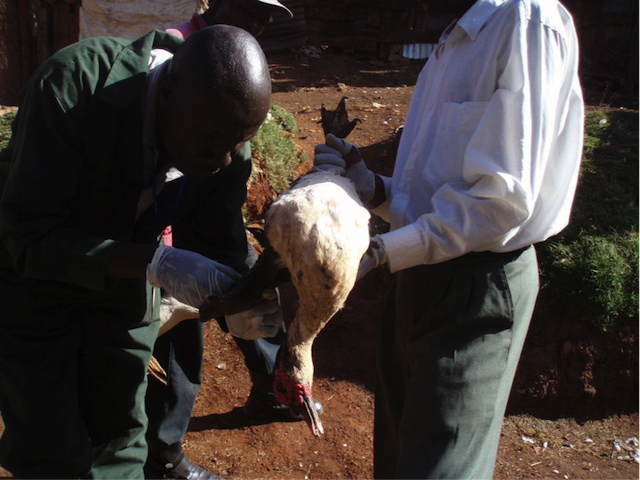

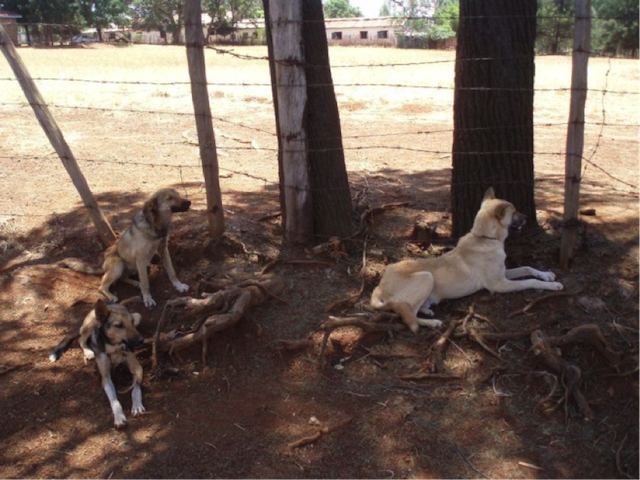
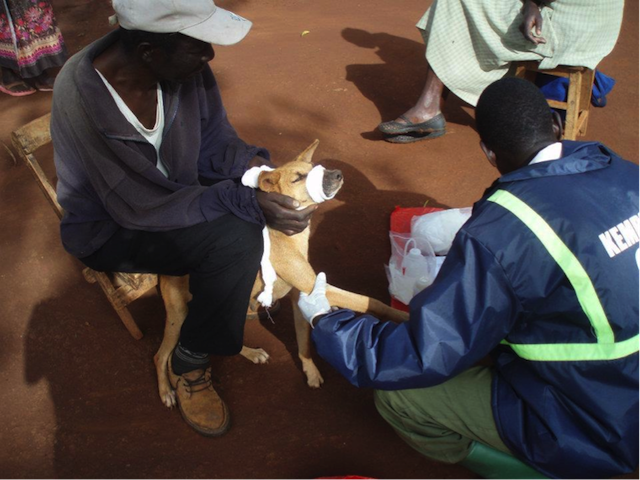
Comments
Awesome post! I have been wondering about opportunities with the CDC and disease out break! You have answered many of my questions. Thank you so much for sharing your experiences!
Glad you enjoyed hearing Colin’s story! You’ll have to remember this fellowship program for a couple of years from now when you are a second year vet student. 🙂
I would be interested to know if there’s funding/room in this program for researchers – I’m a zoonotic disease researcher and this looks awesome!
Thanks for your comment! Unfortunately the Hubert fellowship is only for veterinary and medical students, but the CDC also has a ton of opportunities for other types as well. Check out this link: http://www.cdc.gov/Features/studentopportunities/
I too am trying to find opportunities available to non-traditional, yet non-veterinarian animal health/disease students. Do you know of anything interesting?
Jenna, you should definitely check out Hillary from Confounding Variable’s blog (linked on her comment). She’s getting her master’s in epidemiology and has some great content.
Very interesting and unique opportunity. I will definitely be applying for this once I get in! Thank you for sharing!
Sounds like a plan! There’s something so appealing about the whole idea of the CDC — maybe I’ve just read too many disease thrillers or something — but featuring Colin’s account has made me start thinking about applying for the Epidemic Intelligence Service again myself…
Do it! That’s one of my career dreams!
Dooooooo ittttttttttttttt. Dooooooo itttttttttt. I’ve found that peer pressure usually works.
I would LOVE to do this but I’ve graduated :0(. Would you know of similar programs for vets who want to explore careers outside of private practice at this time? Let me know and thanks!!
Isn’t it a bummer that most of these programs seem to be restricted to current students? It’s like these organizations think that once we’ve graduated we are going to stick with the same type of work for the rest of our lives. I think it’s always worth making an inquiry to the program administrators, at least, just to see if they would consider making an exception. If not, I think you could be very successful simply making your own contacts with some vets at the CDC to see if they would be willing to take you on as a training intern for a while? This might not come with the same funding as a traditional fellowship, but it could otherwise be a very similar experience. Finally, the CDC does have a number of longer training programs (with stipends) for post-grads of all sorts. Check out this list: http://www.cdc.gov/fellowships/CareerInternships.html Good luck!
I completely agree with Elliott. There aren’t a ton of programs for practicing veterinarians. That being said there are great opportunities at conferences and other events to network and learn more about opportunities in non-traditional fields. The Epidemiology Intelligence Service conference (April 22-26 in Atlanta, GA) is a great way to network with veterinarians and other medical professionals who work for the CDC.
Amazing opportunity. Something I’ll keep in mind once I get in! 🙂
Thank you, Daniela, for being such a faithful commenter! I might be going for a record number here, let’s see. 🙂 And I like that confidence: ONCE you get in.
Elliot and gang. Just found your blog via VIN and am loving it so far. I am a SA vet currently half way through my MPH, and having a blast with it. Elliot, you and I seem to be on similar career paths. I too hope to apply to the EIS in the future, with potential military or USPHS service following. Any chance you are heading to Atlanta for the EIS conference in April? If so, e-mail me and we can meet up to chat.
Again, really enjoying the blog. Thanks for the hard work. Vet students reading, I encourage you to take advantage of every available opportunity during school. I wish I would have done more!
Best wishes,
Cole Vanicek DVM
Cole, thanks for chiming in here! I love all this discussion. Unfortunately I won’t be in Atlanta in April, but I think Colin will be since that’s where he’ll play the match game to find out his assignment as an EIS officer. Are you going just to meet people and make connections this year? Where are you working on your MPH? Stay in touch!
Hey Cole, I’ll be at the EIS conference! We should definitely meet up. I went to the conference last year and had a great time. There is a lunch event on Monday for all of the veterinarians who work for the CDC. It is a great way to learn about different career paths for vets in the CDC and its a great networking opportunity.
Colin and Elliot,
Sorry you won’t be able to make it to Atlanta Elliott, I am currently in Omaha, Nebraska getting my MPH from University of Nebraska Medical Center. Wish I would have gone the duel MPH DVM route like yourself. Didn’t have the foresight at the time.
Colin, thanks for the heads up about the Monday lunch. Would love to get together at the meeting. I see you listed your e-mail at the bottom of the post. Can I get in touch with you as April draws nearer?
Have a good weekend fellas.
-Cole
Thanks everybody for your great feedback! If anyone has an specific questions please feel free to email me at colinbasler1@gmail.com.
Elliot,
Every time I read your blog I learn about something new. Thank you so much for mentioning the EIS; I had never even heard of it before. All the more reason to get my PhD. I’m having a hard time keeping track of all the cool things I should keep in mind for during and after grad school. Thanks for the daily insipiration!
Jenna
P.S. To any other undergrads, check out the Research Experience for Undergrads (REU) funded by the NSF. Applications are due mid Feb. but they have amazing opportunities in all sorts of fields. (Plus, they are paid, provide housing, meals and travel stipend.) I’m applying for the Population Biology of Infectious Disease at UGA; fingers crossed I’m accepted!
Woah, Jenna, I had never heard about the NSF REU program, but it looks amazing! Thanks for sharing this with our little tribe of uncommon vets and other One Health types.
Thanks Elliott. I’ve written to the CDC folks about exploring my interest in public health but it does appear that such programs are primarily geared towards those still in school. Will keep looking!
Hello! I am a vet student currently applying for the fellowship. I have an interest in the EIS program and the CDC in general after attending the CDC Student day last year. Fingers crossed!
Hi Nicole. I also applied for the Hubert Fellowship. Hopefully we will both be accepted and able to meet in January. Which project are you interested in? I didn’t get a chance to attend the CDC Student Day. What was it like? Good luck!!
Awesome. Good luck, and keep us updated on how it turns out!